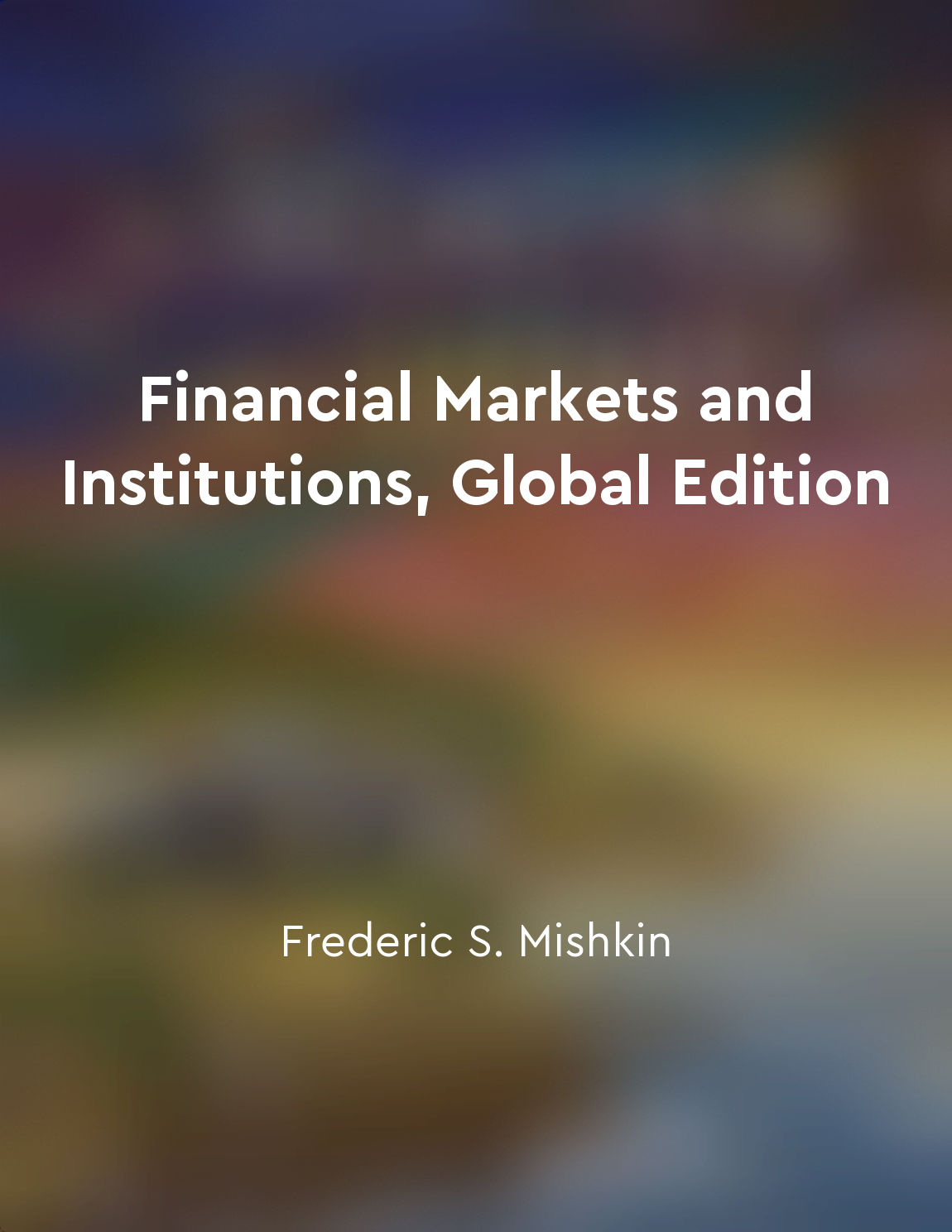Market contagion can spread rapidly during times of uncertainty from "summary" of Financial Markets and Institutions, Global Edition by Frederic S. Mishkin,Stanley G. Eakins
During periods of uncertainty, market contagion has the potential to spread rapidly across financial markets. This phenomenon occurs when a shock in one market spills over into other markets, causing disruptions and amplifying the initial impact. The interconnectedness of global financial markets means that adverse events in one market can quickly transmit to others, creating a domino effect that can lead to widespread instability. The speed at which market contagion can spread during times of uncertainty is often exacerbated by factors such as panic selling, herding behavior, and information asymmetry. Investors may react irrationally to unfolding events, leading to a cascade of selling that can drive prices down across multiple asset classes. In addition, the lack of reliable information during periods of uncertainty can create confusion and volatility, further fueling contagion effects. Market contagion can also be amplified by the presence of complex financial instruments and interconnected financial institutions. Derivatives and other structured products can serve as channels for contagion to spread rapidly through the financial system, as losses in one market can trigger margin calls and forced selling in related markets. Similarly, the interconnectedness of financial institutions through counterparty relationships and interconnected balance sheets can magnify contagion effects, as distress in one institution can quickly spread to others. During times of uncertainty, policymakers and market participants must remain vigilant and proactive in monitoring and managing contagion risks. Timely and coordinated responses, such as liquidity injections, coordinated interest rate cuts, and regulatory interventions, can help contain the spread of contagion and restore market stability. However, the complex and interconnected nature of global financial markets means that addressing market contagion effectively requires a coordinated and holistic approach that addresses systemic vulnerabilities and promotes market resilience.Similar Posts
Economic development should be sustainable
Sustainable economic development is not just a trendy catchphrase or a passing fad. It is a crucial concept that we must take s...
The key to successful mergers lies in thorough research
The success of any merger hinges on the meticulous research conducted prior to the deal. This critical phase involves delving d...
The psychological toll on those who predicted the crisis
The aftermath of the crisis took a heavy toll on those who had seen it coming. They were burdened by a sense of guilt and respo...
Innovation requires discipline
The concept that innovation requires discipline is essential to understand for any entrepreneur or investor looking to create l...
The Federal Reserve manages the US money supply
The Federal Reserve, often simply referred to as the Fed, plays a crucial role in the United States economy by overseeing and i...
Government policies can exacerbate debt crises
Government policies play a crucial role in determining the severity and duration of debt crises. When policymakers fail to addr...

Be cautious of speculative investments
Speculative investments are like a siren's song, luring investors in with the promise of quick riches. However, as history has ...

The human toll of the crisis cannot be understated
The devastating impact of the financial crisis on everyday people is immeasurable. Families lost their homes, their jobs, and t...
Warning signs were ignored
In the years leading up to the crash, many warning signs were present but were largely ignored by those in positions of power a...
Lessons learned
In the aftermath of the financial crisis of 2008, the concept of learning from past mistakes was at the forefront of many discu...

